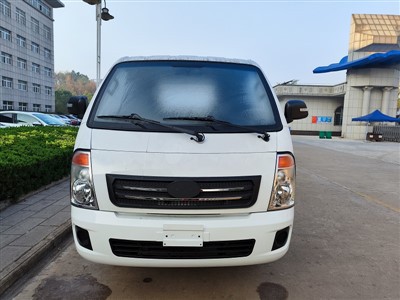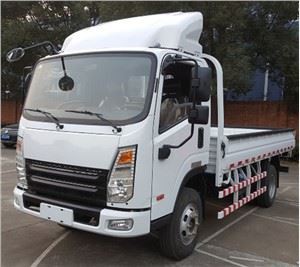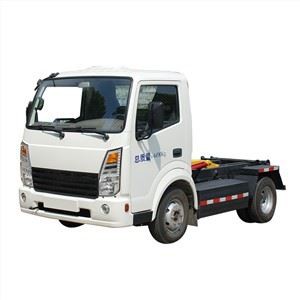When planning a logistics operation, choosing the appropriate vehicle is essential. In this context, day cab rentals have become a popular choice for many businesses. Day cabs are designed for short-distance travel, ideal for local deliveries, and provide advantages that benefit both cost and functionality. This article will explore everything about day cab rental, including types, costs, benefits, tips for selection, and answers to frequently asked questions.
What is a Day Cab?
A day cab is a type of truck designed for short-haul transport. Unlike sleeper cabs, day cabs do not have a sleeping compartment for long-distance travel. They are typically smaller, lighter, and more maneuverable, making them perfect for urban and suburban areas where tight spaces and heavy traffic may be challenging to navigate.
Typical Features of Day Cabs
- Single cab with two seats
- No sleeping or sleeping compartment
- Short wheelbase for better maneuverability
- Powerful engines for increased efficiency
Why Choose Day Cab Rentals?
There are numerous reasons organizations opt for day cab rentals rather than purchasing their own trucks. Here are some of the most compelling benefits:
Cost-Effectiveness
Renting a day cab often proves more affordable than buying, particularly for companies that do not need long-term transportation options. Renting saves on purchase costs, maintenance, insurance, and depreciation.
Flexibility
Day cab rentals offer a flexible solution for varying hauling needs. Businesses can rent trucks for specific projects, seasons, or when their fleet is under maintenance.
Access to Modern Equipment
Rental companies regularly update their fleets, providing access to the latest models equipped with advanced technologies that enhance fuel efficiency and safety.
Types of Day Cabs Available for Rent
Standard Day Cabs
Standard day cabs are the most common type found in rental fleets. They feature a basic layout with a robust engine suitable for local hauling tasks.
Heavy-Duty Day Cabs
Heavy-duty day cabs are designed for more substantial hauling requirements. They are equipped with powerful engines to carry heavier loads across greater distances while still adhering to local regulations.

Fuel-Efficient Day Cabs
There is a growing demand for eco-friendly vehicles in logistics. Rental companies are increasingly offering fuel-efficient day cabs that utilize alternative fuels, ensuring reduced emissions and lower fuel consumption.
Cost of Day Cab Rentals
The cost of renting a day cab can vary based on several factors, including location, truck model, rental duration, and additional services. Here’s a breakdown of potential costs:
| Rental Duration | Average Cost Per Day |
|---|---|
| 1 Day | $100 – $300 |
| 1 Week | $500 – $1,200 |
| 1 Month | $1,500 – $3,000 |

Additional costs may include mileage fees, fuel charges, and insurance. It’s essential to review the rental agreement carefully to understand your total expenses.
How to Select the Right Day Cab Rental Service
Choosing the right rental service is crucial. Here are some tips to help you make an informed decision:
Evaluate Your Needs
Understand the scope of your project, including distance, load size, and duration. This analysis will guide you in selecting the appropriate day cab type.
Research Rental Companies
Look for reputable rental companies in your area. Read online reviews, check ratings, and ask for recommendations from other businesses to ensure you find a trustworthy provider.
Compare Rental Prices
Contact several companies and compare their rental prices. Ensure that you inquire about any additional fees that may not be included in the quoted price.
Check Vehicle Condition
Before finalizing the rental, inspect the vehicle for any signs of wear and tear. A well-maintained vehicle is essential for safe and reliable operation.
Tips for Driving a Day Cab
Driving a day cab requires skill and knowledge. Here are some practical tips to keep in mind:

Maneuvering in Tight Spaces
One of the main advantages of a day cab is its maneuverability. Practice turning and parking in tight spots to build confidence. Be cautious of your blind spots and use your mirrors effectively.
Understanding Weight Distribution
Proper weight distribution is vital for safe driving. Ensure your load is balanced and not exceeding the vehicle’s capacity to avoid accidents or damage.
Monitoring Fuel Efficiency
Day cabs are designed for efficiency, but driving habits can significantly impact fuel consumption. Adopt smooth acceleration and braking techniques to maximize fuel savings.
Environmental Considerations with Day Cab Rentals
With growing concerns about environmental impact, businesses are increasingly focusing on sustainability. Here’s how day cab rentals can contribute:
Choosing Eco-Friendly Options
Many rental companies offer hybrid or electric day cabs. These vehicles significantly reduce greenhouse gas emissions, making logistics operations more environmentally friendly.
Low Emission Zones
Some cities enforce low emissions zones (LEZ). Renting a compliant day cab can help businesses avoid fines and contribute to cleaner air.
Insurance Considerations for Day Cab Rentals
When renting a day cab, understanding insurance coverage is essential to safeguard your investment. Here are key points to consider:
Types of Insurance Coverage
- Liability Insurance: Covers damage to third parties in case of an accident.
- Collision Insurance: Covers damage to the rented truck.
- Comprehensive Insurance: Covers theft or non-collision damage.
Discussing Coverage with Rental Companies
Always discuss insurance options with the rental company. Some may include coverage in the rental fee, while others require separate insurance purchases.
FAQ Section
1. What do I need to rent a day cab?
To rent a day cab, you typically need a valid driver’s license, proof of insurance, and a credit card for the deposit. Some companies may have additional requirements, so always check with the rental provider.
2. Can I rent a day cab for long-distance travel?
While day cabs are designed for short-haul trips, you can rent one for long distances. However, consider that it lacks a sleeping compartment, so plan rest and overnight accommodations accordingly.
3. What is included in the rental agreement?
The rental agreement usually includes the rental cost, mileage limits, insurance coverage options, and any additional fees like late return penalties. Review the document carefully before signing.
4. Are there mileage limits on day cab rentals?
Many rental companies impose mileage limits. Additional fees may apply if you exceed these limits, so clarify these terms during the rental process.
5. Can I rent a day cab with a specific truck model in mind?
Some rental companies allow you to request specific truck models, but availability may vary. It’s advisable to check with the company ahead of time if a particular model is essential for your needs.
6. How far in advance should I book a day cab rental?
It’s best to book your day cab rental at least a week in advance, especially during peak seasons. Early booking ensures that you have access to the right vehicle for your transportation needs.